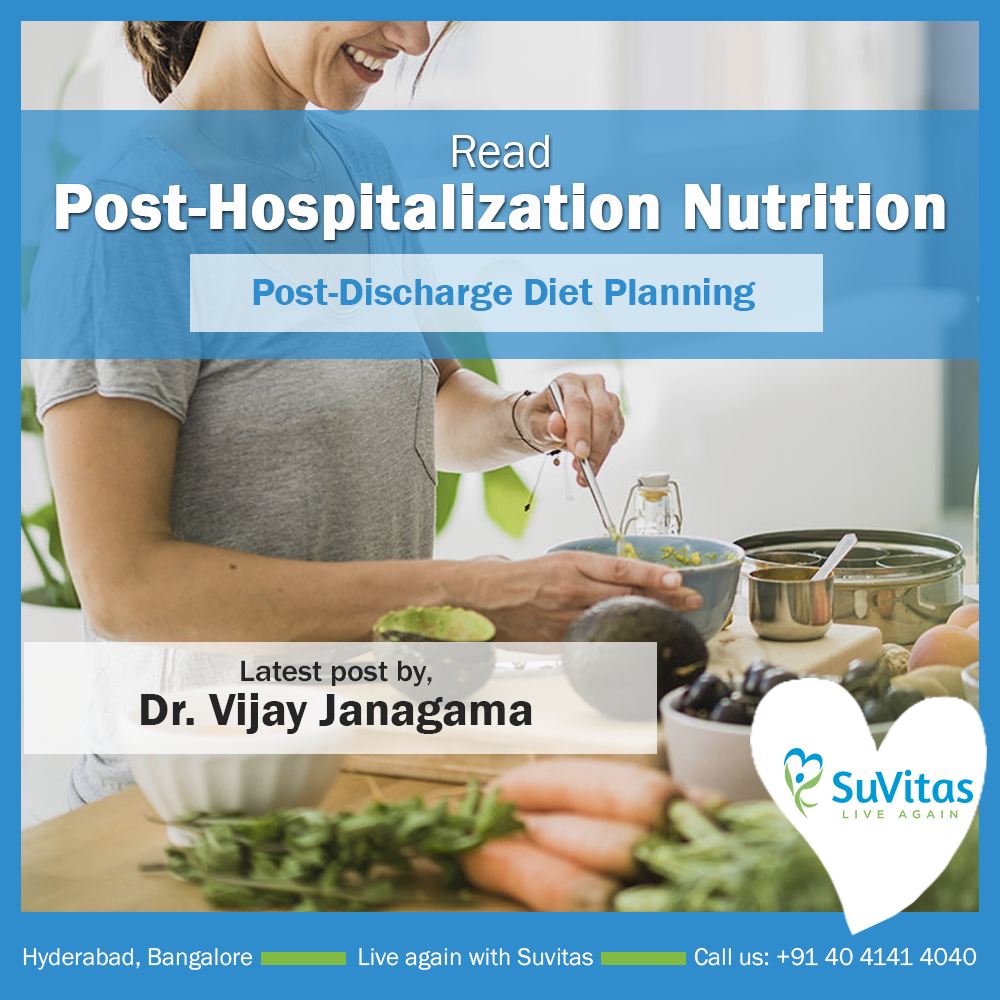Why Diet shouldn’t be the Last to consider while Planning Discharge
It is customary to send fruits to dear ones during recuperation. As important as timely medication, it is common knowledge that good nutrition is integral for recovery. Most hospitals therefore have full-fledged kitchens to provide dietician-recommended healthy meals to patients for faster recovery. However, soon after hospital discharge, most patients switch to their normal diet as if good nutrition is not a priority during convalescence.
Hospitalization and chronic illnesses can leave a patient with loss of muscle mass, physical weakness and make him/her more prone to more complications. Nutritional deficiency during post hospitalization recovery phase has therefore been associated with higher readmission rates, functional deterioration,delayed healing of wounds and loss of quality of life. However, research shows positive outcomes in-patients who followed improved diet plan, especially among those who were found malnourished during the hospital stay itself. An ideal nutrition program must begin from hospital and smoothly transition to our everyday lives through interim interventions of clinical dietitians.
Three - Step Process in Diet Planning:
A three-step process is usually involved while deciding a post hospitalization recovery diet for an individual.
Prolonged hospital stays have been found to induce lot of long-term consequences like loss of strength,function and cognition. An effective nutrition programme planned within a structured post-hospitalization care plan has been found to be immensely beneficial in reversing the impact and improving the overall quality of life.

